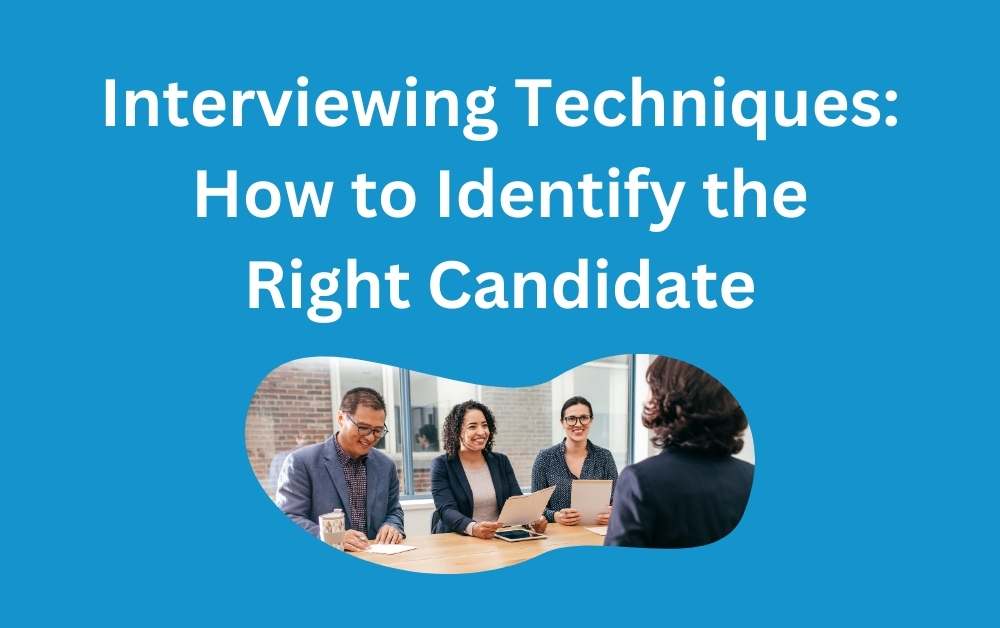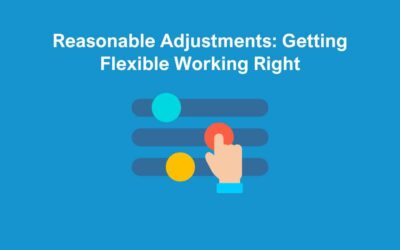Hiring the right candidate can be a game-changer for your organisation. They can bring fresh perspectives, new skills, and a positive dynamic to your team. However, finding the perfect fit isn’t always easy. That’s where effective interviewing techniques come into play.
In this blog post, we’ll explore strategies to help you identify and hire the best candidate for your company.
Define Your Ideal Candidate
Before conducting interviews, it’s crucial to have a clear understanding of the qualities, skills, and experiences you’re looking for in a candidate. Create a detailed job description and a list of “must-haves” and “nice-to-haves”. This will serve as a roadmap during the interview process, ensuring you focus on the most important aspect.
Structured Interviews
Structured Interviews involve asking each candidate the same set of predetermined questions. This approach provides consistency, making it easier to compare candidates objectively. Questions should be designed to assess both technical skills and cultural fit. Include situational and behavioural questions to gauge how the candidate would handle real-life scenarios.
Behavioural Interviewing
Behavioural interviewing seeks to understand how candidates have behaved in the past as an indicator of future behaviour. Encourage candidates to provide specific instances from their previous work experiences, helping you evaluate their problem-solving abilities, teamwork, and adaptability.
Assess Cultural Fit
A candidate’s technical skills are important, but their alignment with your company’s culture is equally crucial. During interviews, probe into their values, work style, and interpersonal skills. Ask questions like, “How do you handle conflicts within a team?” or “Can you describe a work environment where you thrive?”
Use Skill Assessments
Incorporate skill assessments or practical exercises relevant to the job. For instance, if you’re hiring a developer, provide a coding test. These assessments can reveal a candidate’s actual abilities and problem-solving skills, helping you make a more informed decision.
Listen Actively
During interviews, focus on active listening. Give candidates your full attention and avoid interrupting. This will not only make the candidates feel valued but also allow you to gain deeper insights into their responses. Pay attention to non-verbal cues such as body language and tone of voice, which can provide additional context.
Involve the Team
Incorporate team members into the interview process, especially those who will work closely with the new hire. Their input can be invaluable in assessing cultural fit and team dynamics. Team interviews also give candidates a better understanding of your company’s culture.
Be Transparent
Be honest about the role, your company’s expectations, and its challenges. Transparency builds trust and ensures that candidates are making informed decisions about joining your organisation.
Follow Up References
After the interviews, don’t skip the reference checks. Contact former employers or colleagues to verify the candidate’s work history and performance. This step can help you confirm the accuracy of the candidate’s claims and gather additional insights.
Trust Your Instincts
Finally, trust your instincts. While data-driven decisions are essential, your intuition can also play a role in the hiring process. If you have reservations about a candidate, explore them further before making a final decision.
Hiring the right candidate is a pivotal step in your organisation’s success. By employing effective interviewing techniques and staying true to your company’s values and culture, you can increase your chances of finding the perfect match. Remember, it’s not just about filling a position; it’s about welcoming a valuable team member who will contribute to your company’s growth and success.







